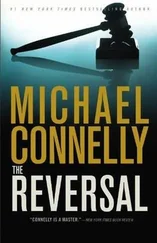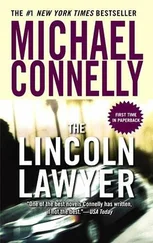“And after the war you joined the cops.”
“Well, I kicked around a little and then joined the department. It seemed most of the vets I knew, like what Scales said today, were going into the police departments or the penitentiaries.”
“I don’t know, Harry. You seem like the loner type. A private eye, not a man who has to take orders from men he doesn’t respect.”
“There are no more private operators. Everybody takes orders… But all this stuff about me is in the file. You know it all.”
“Not everything about somebody can be put down on paper. Isn’t that what you said?”
He smiled as a waitress cleared the table. He said, “What about you? What’s your story with the bureau?”
“Pretty simple, really. Criminal justice major, accounting minor, recruited out of Penn State. Good pay, good benefits, women highly sought and valued. Nothing original.”
“Why the bank detail? I thought the fast track was antiterrorism, white-collar stuff, maybe even drugs. But not the heavy squad.”
“I did the white-collar stuff for five years. I was in D.C., too, the right place to be. The thing is, the emperor had no clothes. It was all deadly, deadly boring stuff.” She smiled and shook her head. “I realized I just wanted to be a cop. So, that’s what I became. I transferred to the first good street unit that had an opening. L.A. is the bank robbery capital of the country. When an opening came up here, I called in my markers and got the transfer. Call me a dinosaur, if you want.”
“You are too beautiful for that.”
Despite her dark tan, Bosch could tell the remark embarrassed her. It embarrassed him, too, just sort of slipping out like that.
“Sorry,” he said.
“No. No, that was nice. Thank you.”
“So, are you married, Eleanor?” he said and then he turned red, immediately regretting his lack of subtlety. She smiled at his embarrassment.
“I was. But it was a long time ago.”
Bosch nodded. “You don’t have anything… what about Rourke? You two seemed…”
“What? Are you kidding?”
“Sorry.”
They laughed together then, and followed it with smiles and a long, comfortable silence.
After lunch they walked out on the pier to the spot where Bosch had once stood with rod and reel. There was no one fishing. Several of the buildings at the end of the pier were abandoned. There was a rainbow sheen on top of the water near one of the pylons. Bosch also noticed the surfers were gone. Maybe all the kids are in school, Bosch thought. Or maybe they don’t fish here anymore. Maybe no fish make it this far into the poisoned bay.
“I haven’t been here in a long time,” he said to Eleanor. He leaned on the pier railing, his elbows on wood scarred by a thousand bait knives. “Things change.”
***
It was midafternoon by the time they got back to the Federal Building. Wish ran the names and prisoner identification numbers Scales had given them through the NCIC and state department of justice computers and ordered mug shots photo-faxed from various prisons in the state. Bosch took the list of names and called U.S. military archives in St. Louis and asked for Jessie St. John, the same clerk he had dealt with on Monday. She said the file on William Meadows that Bosch had asked for was already on the way. Bosch didn’t tell her he already had seen the FBI’s copy of it. Instead, he talked her into calling up the new names he had on her computer and giving him the basic service biography of each man. He kept her past the end of shift at five o’clock in St. Louis, but she said she wanted to help.
By five o’clock L.A. time Bosch and Wish had twenty-four mug shots and brief criminal and military service sketches of the men to go with them. Nothing jumped off Wish’s desk and hit either of them over the head. Fifteen of the men had served in Vietnam at some point during the period Meadows was there. Eleven of these were U.S. Army. None were tunnel rats, though four were First Infantry along with Meadows on his first tour. There were two others who were MPOs in Saigon.
They focused on the NCIC records of the six soldiers who were First Infantry or military police. Only the MPOs had bank robbery records. Bosch shuffled through the mug shots and pulled those two out. He stared at the faces, half expecting to get confirmation from the hardened, disinterested looks they gave the camera. “I like these two,” he said.
Their names were Art Franklin and Gene Delgado. They both had Los Angeles addresses. In Vietnam, they spent their tours in Saigon assigned to separate MP units. Not the embassy unit that Meadows was attached to. But, still, they were in the city. Both of them had been discharged in 1973. But as with Meadows, they stayed on in Vietnam as civilian military advisers. They were there until the end, April 1975. There was no question in Bosch’s mind. All three men-Meadows, Franklin and Delgado-knew each other before they met at Charlie Company in Ventura County.
Stateside after 1975, Franklin got jammed up on a series of robberies in San Francisco and went away for five years. He went down on a federal rap of bank robbery in Oakland in 1984 and was at TI at the same time as Meadows. He was paroled to Charlie Company two months before Meadows left the program. Delgado was strictly a state offender; three pops for burglaries in L.A., for which he was able to get by on county lockup time, then an attempted bank robbery in Santa Ana in 1985. He was able to plead in state court under an agreement with federal prosecutors. He went up to Soledad, getting out in 1988 and arriving at Charlie Company three months ahead of Meadows. He left Charlie Company a day after Franklin arrived.
“One day,” Wish said. “This means all three were together there at Charlie Company only one day.”
Bosch looked at their photos and the accompanying descriptions. Franklin was the larger one. Six foot, 190, dark hair. Delgado was lean, five-six and 140. Dark hair, too. Bosch stared at the photos of the big man and the small man, and was thinking about the descriptions of the men in the Jeep that had dumped Meadows’s body.
“Let’s go see Sharkey,” he said after a while.
He called Home Street Home and was told what he knew they were going to tell him: Sharkey was gone. Bosch tried the Blue Chateau and a tired old voice told him that Sharkey’s crew had moved out at noon. His mother hung up on Bosch after she determined he was not a customer. It was near seven. Bosch told Wish they would have to go back to the street to find him. She said she’d drive. They spent the next two hours in West Hollywood, mostly in the Santa Monica Boulevard corridor. But there was no sign of Sharkey or his motorbike locked to a parking meter. They flagged down a few sheriff’s cruisers and told them who they were looking for, but not even the extra eyes helped. They parked at the curb by the Oki Dog, and Bosch was thinking that maybe the boy had gone back to his mother’s house and she had hung up the phone to protect him.
“You want to take a ride up to Chatsworth?” he asked.
“As much as I’d like to see this witch you told me Sharkey has for a mother, I was thinking more along the lines of calling it a day. We can find Sharkey tomorrow. How about that dinner we didn’t have last night?”
Bosch wanted to get to Sharkey, but he also wanted to get to her. She was right, there was always tomorrow.
“Sounds good to me,” he said. “Where you feel like going?”
“My place.”
***
Eleanor Wish lived in a rent-controlled townhouse she subleased two blocks from the beach in Santa Monica. They parked at the curb in front, and as they went in she told Bosch that although she lived close by, if he wanted to actually see the ocean he had to walk out onto her bedroom balcony, lean over and look sharply to the right down Ocean Park Boulevard. A slice of the Pacific could then be seen between two condominium towers that guarded the shoreline. From that angle, she mentioned, he could also see into her next-door neighbor’s bedroom. The neighbor was a has-been television actor turned small-time dope dealer who had a never-ending procession of women through the bedroom. It kind of took away from the view, she said. She told Bosch to have a seat in the living room while she got dinner started. “If you like jazz, I have a CD over there I just bought but haven’t had time to listen to,” she said.
Читать дальше












